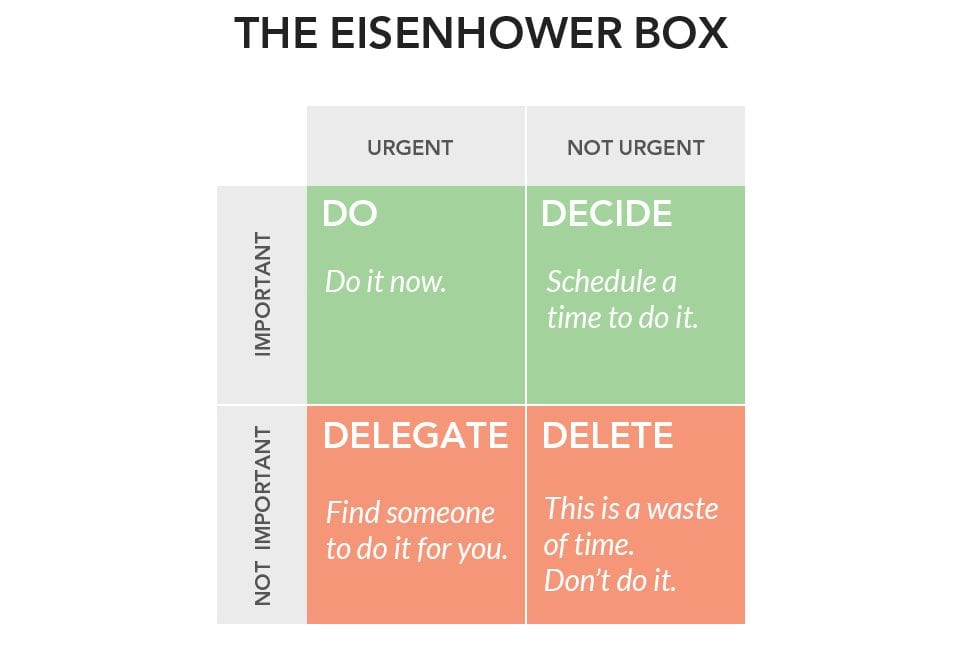
Three things are certain in life:
Death;
taxes;
and the fact that the more senior you get in a professional services firm, the more you’re going to feel overwhelmed by expectations that are seemingly flying at you from all angles.
I’m sure you’ve guessed that this article is not going to be about death nor taxes. Indeed, it’s all about something that I find myself working through with most of my coachees as they find their feet as senior associates and junior managers: how to manage a lot more responsibility.
I often talk about one of the benefits of working in professional services being the constant learning. This is not always technical learning; very often it’s important professional skills that will set you up for life. Managing expectations and being able to attack your mountain of work in a logical manner is one such professional skill.
Fortunately, I have a system that has served me, and many others, well for a number of years which I’d like to share with you. This is a system that I still use every single day, although it’s now very much a subconscious effort.
What if I told you that every single task/request/email/phone call that you get should be sorted into 4 buckets? And that you will use these buckets to be more productive than you’ve ever been before?
Well, that’s exactly what I am here to tell you…
The 4 Ds of productivity
Do. Drop. Delegate. Delay.
These four “D”s are how you’re going to avoid burnout while you navigate your way up the ranks. As I said before, every single task that comes across your desk fits into one of these four categories. It’s important that you understand which one is the right fit for that task at that time. Let’s work through what each one means for you.
Do
If we’re trying to improve our work-life balance – and I’m going to assume that all of us here are – this “D” should be your absolute last resort.
If you choose to do a task, that means:
1. It needs to be done now; and
2. It can only be done by you
I’ll let you in on a secret: despite what your bosses might say, rarely are things quite as urgent as what they’re made to seem. One of the most important skills you’ll ever learn in your career is to understand what is truly important right now. You’ll use this to inform what you choose to “do” from your growing mountain of work.
While you’re learning, though, use this option only when you’ve decided that none of the other options are appropriate.
Drop/Delete
This is my personal favourite, and the exact opposite of “Do”. If you’re trying to improve your work-life balance, this is the one you’re going to look to do most often.
There is nothing more therapeutic than finding a way to remove something from your to-do list entirely. Sure, you might not (always) be able to drop that report your manager asked you for, but I’m willing to bet that there are thousands of things that come across your desk which you’re giving your valuable, and underserved, attention to.
Do you really need to fill in that form, asking you for 10 minutes of your time, to evaluate the colour scheme of last Friday night’s virtual trivia slide deck? Do you need to attend an hour-long meeting where only 5 minutes are relevant to you?
It’s time to start finding ways to get back your valuable time. Delete that form. Ask the meeting host if it’d be okay for you to catch up after the meeting for 5 minutes to get the relevant information.
Don’t, even for a second, believe that every invite or every email that comes past you is important. I’m here to tell you that it’s very likely not.
Delegate
The beauty of becoming more senior is that you start to get your very own juniors to work with! Your firm is not designed for you to do the same grunt work year after year. The idea is that somebody (cheaper) is hired to do that work, freeing you up to tackle more complex (and usually fulfilling) tasks. This concept is somewhat reliant on you having the confidence to hand over the reins and ask people to do what they’re hired to do!
When a task crosses your desk that needs to be done now, ask yourself: “do I need to be the one doing this?”
Very often there’s a junior/offshore/alternative team member that has both the capacity and the willingness to tackle that task on your behalf. Hopefully, this allows you to spend a fraction of the time setting them up/checking the work (because, when delegating, the responsibility usually ultimately still lies with you) instead of the full amount of time doing it yourself!
Delegating is very much an art and is likely to push you out of your comfort zone. If you’re ever going to feel less overwhelmed by your workload, though, delegating is something you absolutely have to embrace. Once you’re able to do this effectively, you’ll be able to shift a lot off your plate and also focus on the things that challenge and develop you into an even better professional!
Delay
“Delay’ is the last tool in your arsenal when it comes to managing your workload, and it’s one that shouldn’t be underestimated. Realistically speaking, it’s probably the tool you’re going to use most often.
When a task arrives that needs to be done, but cannot be delegated then it means you probably have to do it. The last tactic is to understand whether it can be pushed out to a later stage. As I talked about above, not everything is as urgent as it might seem. Not only that; you’re only one person! You can physically only do a single task at a time.
Get comfortable with asking questions like “when do you need this by?” or “is it okay if I get this to you next week?”
Don’t feel bad about letting people know that you’ve got a lot on your plate if you intend to get to their task a little later on. Good communication is key when it comes to managing these expectations.
Create lists of priority tasks and work down your list, delaying tasks until they’re top of the list (i.e. they need to be done by you, and they need to be done now.)
Is managing workload really that simple?
In theory, yes. It’s that simple. In practice? Not at first.
Learning to manage your workload and using the 4 Ds of productivity incorporate a whole range of soft skills to get it just right. It’ll also require a bit of self-awareness and critical analysis of your to-do list. If you’re committed to the process, however, I can guarantee that working through your tasks in this manner – with “do” being the absolute last resort – you’ll be better off for it.

I can’t take credit for this system, unfortunately. It was the teachings of Dwight Eisenhower which led to the development of the 4 Ds, otherwise known as the Eisenhower Box.
It’s been around seven years since I learned this system for the first time. I never thought much of it at first, until I caught myself doing it – almost subconsciously – and realising that it really is essential in order to stay sane while working under pressure in a professional services firm.
One last “DO” before you go
In the hopes that you haven’t incorporated the 4 “D”s of productivity in your daily life just yet, I’d like to take advantage and ask you to do one last thing before you go: sign up for our email list so we can send you any new content from our lovely authors. Trench life is a blog FOR young professionals, BY young professionals and we’d love to be able to share more content just like this article with you.
You can sign up by scrolling down and plugging your email address into our sign-up box, or on this page.
Do you have any other productivity tips that have changed the way you work? Let me know in the comments below!
- Avoiding Tears and Tantrums: Giving Negative Feedback Like a Pro - December 14, 2022
- An AI has this advice to young professionals for 2023 - November 24, 2022
- When’s the last time you prioritised yourself? - May 3, 2022

Leave a Reply